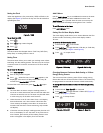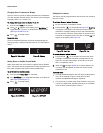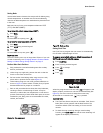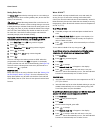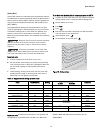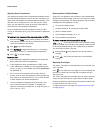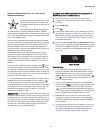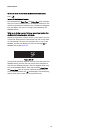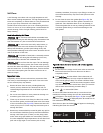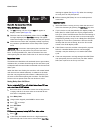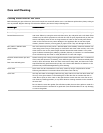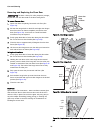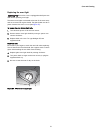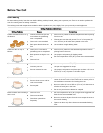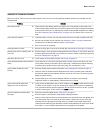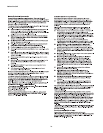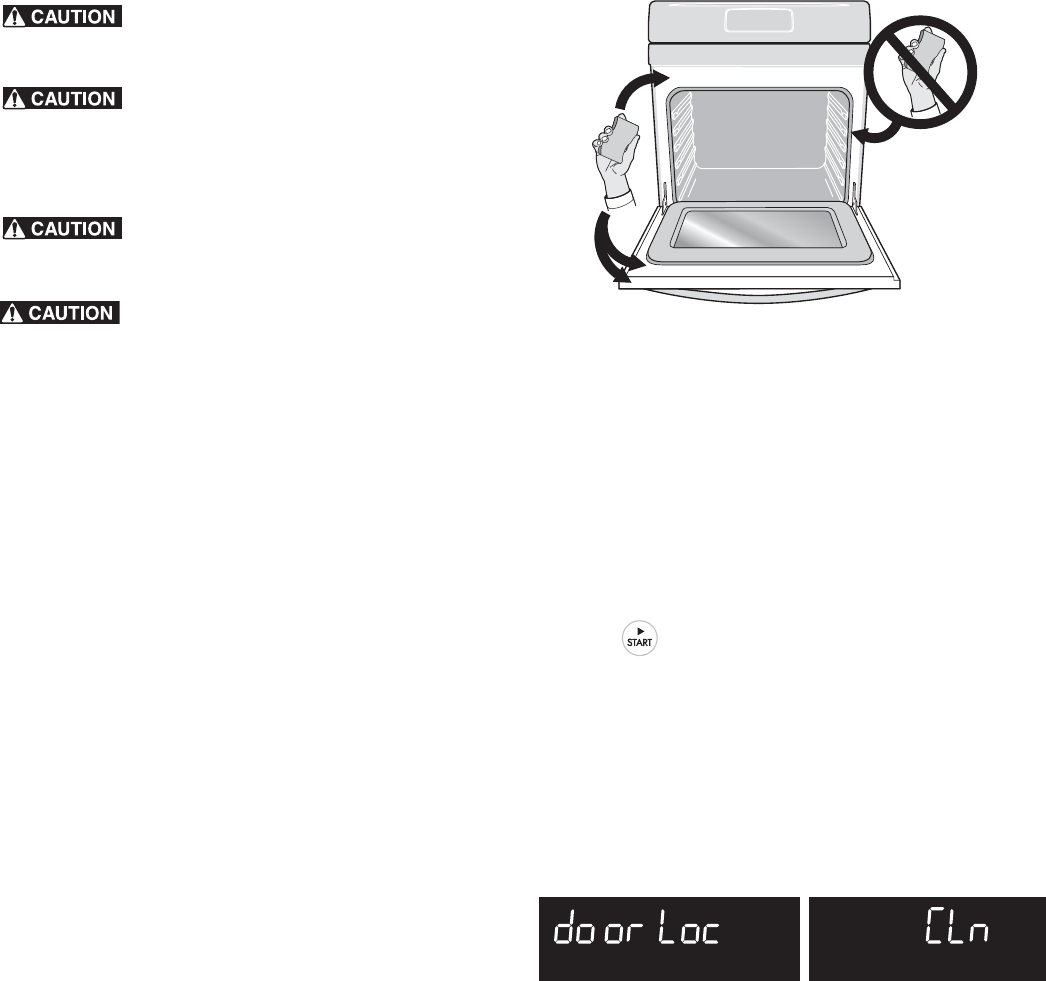
17
Oven Controls
Self Clean
A self cleaning oven cleans with very high temperatures well
above normal cooking temperatures. The high temperature elim-
inates soils completely or reduces them to a fine powdered ash
you can wipe away afterwards with a damp cloth.
The Self Clean function allows you to set a cleaning time from
2 hours to 4 hours. A 3 hour cleaning time is recommended for
normal cleaning, 2 hours for light cleaning, and 4 hours for
heavy cleaning.
Read Before Starting Self Clean:
Do not leave small children unattended near
the appliance. During the self cleaning cycle, the outside of the
oven can become very hot to touch and can cause burns.
Do not line the oven walls, racks, bottom, or
any other part of the oven with aluminum foil. Doing so will
destroy heat distribution, produce poor baking results, and
cause permanent damage to the oven interior. Aluminum foil will
melt to the interior of the oven.
The health of some birds is extremely sensitive
to the fumes given off during the self cleaning cycle of any
oven. Move birds to another well-ventilated room.
Do not force the door open. This can damage
the automatic door locking system. Use caution when opening
the oven door after self cleaning. The oven may still be very hot
and can cause burns. To avoid possible burns, stand to the side
of the oven when opening the oven door to allow hot air or
steam to escape.
Important note:
Completely remove all oven racks and any accessories from
oven cavity to avoid damage to oven racks. If the oven racks
are not removed, they may discolor.
• Remove all items from the oven, including bakeware,
utensils, and any aluminum foil. Aluminum foil will not
withstand high temperatures from a self clean cycle and
will melt.
• Do not use oven cleaners or oven protective coatings in or
around any part of the oven interior.
• Clean any soil from the oven frame, the door liner outside
the oven door gasket, and the small area at the front center
of the oven bottom (See Figure 20). These areas heat suffi-
ciently to burn soil on. Clean using soap and water prior to
starting Self Clean.
• Remove any excessive build up caused by spills. Any spill on
the oven bottom should be wiped-up and removed before
starting a self clean cycle. To clean, use hot, soapy water
and a cloth. Large spill residue can cause heavy smoke or
fire when subjected to high temperatures. Do not allow food
spills with a high sugar or acid content (such as milk,
tomatoes, sauerkraut, fruit juices, or pie filling) to remain on
the surface because they may leave a dull spot even after
cleaning.
• Do not clean the oven door gasket (See Figure 20). The
woven material of the oven door gasket is essential for a
good seal. Care should be taken not to rub, damage, or
remove the gasket. Do not use any cleaning materials on the
oven door gasket. Doing so could cause damage to the
door gasket.
To set Self Clean:
1. Be sure the oven is empty and all oven racks are removed.
Remove all items from the oven. Be sure oven door is
completely closed.
2. Press Self Clean, and the default 3 hour clean time will
appear in the display. You may accept the default 3 hour
clean time by going to Step 3 or choose a different clean
time. Press Self Clean and use the numeric keypad to select
any time between 2 hours and 4 hours. Once you have the
desired clean time selected, proceed to Step 3.
3. Press to activate Self Clean.
As soon as Self Clean becomes active, a motor driven lock
mechanism will begin locking the oven door automatically. door
Loc will appear in the display (See Figure 21). Do not open the
oven door when door Loc is displayed (allow 15 seconds for the
lock mechanism to lock the oven).
Once the oven door has locked, CLn will appear in the display,
indicating Self Clean has started.
Figure 20: Oven door area to clean and not clean (gasket).
Figure 21: Door locking (L) and active Clean (R)



